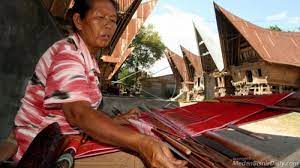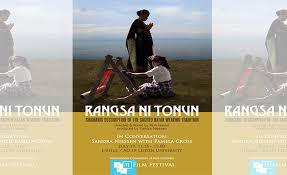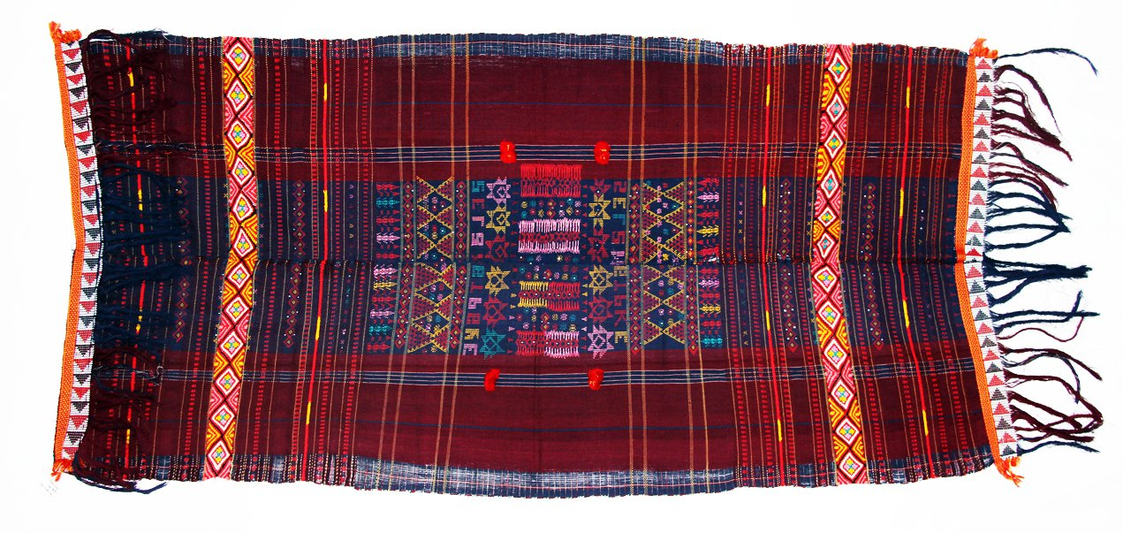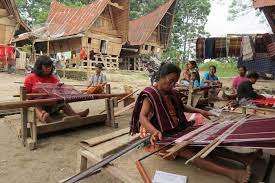Rangsa Ni Tonun - reflection
Rangsa ni Tonun is a documentary that delves into the sacred weaving tradition of the Batak people of North Sumatra, Indonesia. Directed by MJA Nashir and produced by Sandra Niessen, the film brings to light the intricate processes and profound cultural significance of Batak textiles, particularly the ulos. Through the lens of a 19th-century Batak shaman's poetic description, the documentary explores the challenges faced in preserving this art form amidst modernity.
Weaving in Batak culture is not just craftsmanship - it is a spiritual practice. The film is based on a 1872 text "Rangsa ni Tonun," written by Guru Sinangga ni Adji, which portrays weaving as a divine act bestowed by the goddess Si Boru Hasagian. This sacred narrative emphasises the belief that each thread woven is a continuation of a cosmic order, linking the weaver to the divine and to ancestral traditions. The ulos is not simply a textile but a way of preserving the cultural identity and spiritual meaning. Used in various ceremonies—from birth and marriage to death—it symbolises blessings, protection, and the continuity of Batak heritage. The documentary highlights the meticulous process of creating these textiles, focusing on the symbolic patterns and the deep connection between the weaver and the material.
Despite its rich cultural heritage, Batak weaving faces significant challenges. The modernisation of the textile industry and its constant growth - caused by overconsumption - have led to a decline in the demand for handwoven ulos. Younger generations, often perceiving weaving as labor-intensive and economically unfeasible, are increasingly disengaging from this tradition. This generational shift threatens the continuity of the art form and the loss of associated cultural knowledge. Rangsa ni Tonun was made to be a sort of impulse for the revival of Batak weaving culture. By documenting the traditional techniques and the philosophical foundations and rules of Batak weaving, the film aims to reignite interest among the Batak youth. Screenings in Batak villages have evoked emotional responses and a renewed sense of pride in the community's heritage. The film not only preserves the art form but also redefines, modernises it for contemporary audiences, emphasizing its relevance and importance in today's world.
Rangsa ni Tonun is besides being a documentary is most importantly a call to action. It challenges the Batak community and the broader audience to recognize the essential basic value of their cultural heritage and to take active steps in its preservation. Through this film, the sacred art of Batak weaving is not only remembered but also revived, making sure that the tradition and Batak culture lives for generations to come.
Bibliography:
https://www.youtube.com/watch?v=Aa4qlRmpCGQ



